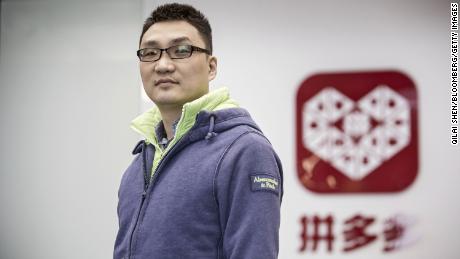Hong Kong/Beijing (CNN Business)China is putting companies that overwork their employees on notice.
The country's top court on Thursday issued a lengthy condemnation of what's commonly known in China as "996," the practice of working from 9 a.m. to 9 p.m. six days a week that is said to be common among the country's big technology companies, startups and other private businesses.
"Recently, extreme overtime work in some industries has received widespread attention," the Supreme People's Court wrote in its statement, which it issued with the Ministry of Human Resources and Social Security. Workers deserve rights for "rest and vacation," adding that "adhering to the national working hour system is the legal obligation of employers," the court wrote.
It cited several examples of companies across a range of industries it said violated labor rules, including an unnamed courier company that it said told employees to work 996 hours. Telling employees to work that much "has seriously violated the law on extending the upper limit of working hours and should be deemed invalid," the court said.
The public backlash against the excessive-work culture isn't new. Alibaba (BABA) co-founder Jack Ma, for example, was heavily criticized in China two years ago after he called 996 culture a "huge blessing." And Chinese labor law already prohibits employees from working that long.
But the latest edict from the country's top court comes as Beijing embarks on a massive crackdown on private business in China, rolling out new regulations and fines to curtail the influence of powerful corporations. The crackdown has been justified by President Xi Jinping and other top officials as necessary to tackle data security risks and inequality in education, and to prevent social instability.
"There is nothing wrong with advocating working hard, but it cannot be a shield for employers to evade [their] legal responsibilities," the court wrote Thursday.
The debate about 996 culture has been revived this year during the crackdown on private enterprise. In January, e-commerce company Pinduoduo (PDD) faced an intense backlash over allegations that it overworks its employees, after two of its employees died unexpectedly, including a man who died by suicide.
The company did not respond at the time to questions about the allegations made against its work culture, but did say that it had set up a team to provide psychological counseling following the suicide of a worker.
Recently young people in China have also begun rejecting an intense work culture by invoking a desire to "lie flat," or "tang ping." The philosophy calls on people to reject societal pressures to work hard, get married, have children or buy property because of the diminishing rewards of achieving such goals.
ŌĆö Laura He and Sophie Jeong contributed to this report.




















